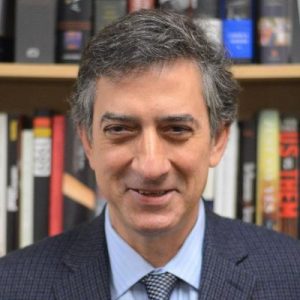
MORGANTOWN, W.Va. — A native son returns Monday night to try and save the Republic.
Seriously.
Daily Beast columnist and author Michael Tomasky will speak at WVU Monday night discussing his new book, If We Can Keep It; How the Republic Collapsed and How it Might be Saved.
Tomasky, who grew up in Morgantown, will host a question and answer session at 7 p.m. at the Media Innovation Center at Evansdale Crossing. The session will focus on Tomasky’s book, which explores centuries of American history to tell the origin story of polarization in American politics.
“Polarization has been very deep in this country,” Tomasky said during an appearance on MetroNews “Talkline” with Hoppy Kercheval. “It’s nothing new. It’s not something that started with Newt Gingrich versus Bill Clinton.”
“It started,” he continues, “with Thomas Jefferson versus Alexander Hamilton arguging in the 1790’s about the exact same thing we are arguing about today — the size and power of the federal government. That’s the point of the book.”
Tomasky references the often forlorn nature of many Americans — particularly pre-Millennial generations — in their diagnosis of the brokenness of the American political system. Tomasky, however, notes that this is hardly a new phenomenon.
“There used to be a lot of overlap between our two political parties,” he said. “The second chapter really goes into a lot of detail on this.”
He added: “For most of our history, we didn’t have a liberal party and a conservative party.”
That, in itself, is one reason Tomasky said it was easier for political parties to find more common ground.
“For most of our history, we had parties that didn’t make a whole lot of ideological sense and in which there was a lot of overlap,” he said. “That overlap meant that they could compromise and they could meet in the middle and they could agree to each getting a half a loaf.”
That, he said, was particularly true in American politics after World War II ended. The terms “liberal” and “conservative” have little meaning, he said, when you fight in a war side-by-side.
“They all went to war,” he said. “They all fought. As I write in the book, if you’ve stormed Utah Beach or helped liberate Buchenwald or fought in Okinawa, you have a pretty sure sense of what an enemy is — and it’s not the guy across the aisle.”
Tomasky cited as his evidence that George McGovern, the Democratic nominee for President who was soundly defeated by Richard Nixon in 1972, was the most liberal Presidential candidate of his lifetime. McGovern, like so many others, was also a celebrated veteran of World War II.
Tomasky also cites a specific set of 14 points for how to, in his view, restore the Republic and deal with hyper-polarization.
“I think that there should be a lot more civics education in the schools just to tell people about the government and their responsibility as citizens,” he said.
It only gets more detailed from there — including work exchange programs to help rural, suburban, and urban-residing Americans to “get to know each other again.”
The question and answer session begins at 7 p.m. Monday, April 15.


